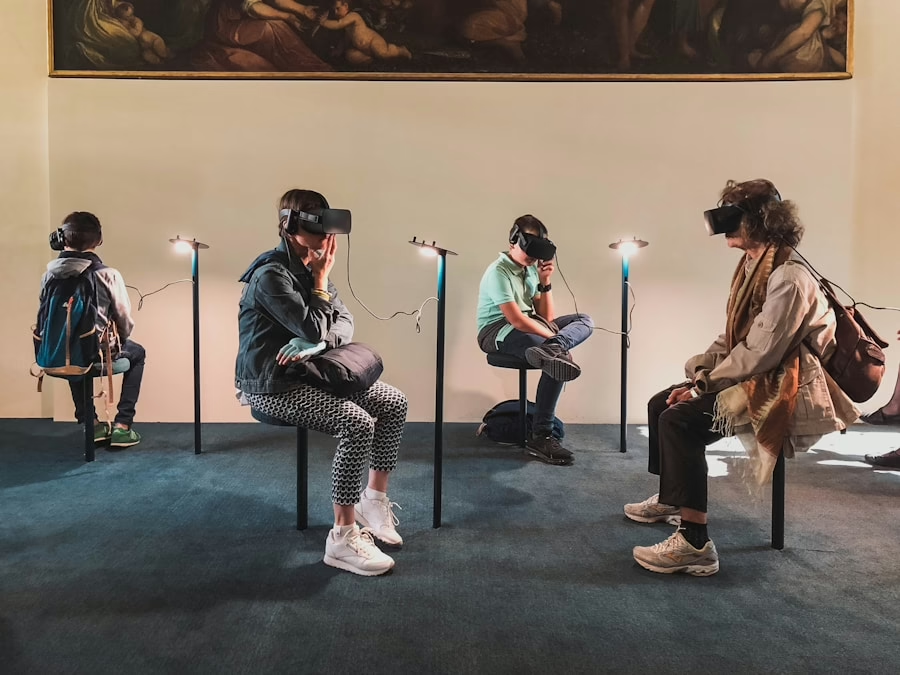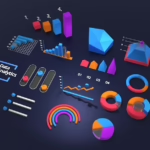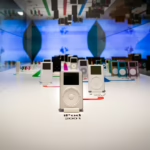Artificial Intelligence (AI) and Machine Learning (ML) have been at the forefront of technological innovation, revolutionizing industries across the globe. AI and ML algorithms are being utilized in various sectors, including healthcare, finance, manufacturing, and transportation, to automate processes, analyze data, and make predictions. For instance, in healthcare, AI is being used to diagnose diseases, predict patient outcomes, and personalize treatment plans.
In the finance industry, ML algorithms are employed for fraud detection, risk assessment, and algorithmic trading. The potential of AI and ML to streamline operations, improve decision-making, and drive efficiency is reshaping the way businesses operate and deliver value to their customers. The integration of AI and ML is not only transforming industries but also creating new opportunities for innovation.
For example, in the automotive sector, self-driving cars are made possible through the use of AI and ML technologies. These advancements are not only enhancing safety on the roads but also redefining the future of transportation. As AI and ML continue to evolve, their impact on industries is expected to grow exponentially, leading to further disruption and innovation in the coming years.
Key Takeaways
- Artificial Intelligence and Machine Learning are revolutionizing industries by automating processes and providing valuable insights for decision-making.
- The rise of 5G technology is transforming connectivity and communication, enabling faster data transfer and supporting the development of new applications and services.
- Augmented Reality and Virtual Reality are shaping the future of entertainment and business by creating immersive experiences and enhancing productivity.
- Quantum Computing is unlocking unprecedented processing power, potentially revolutionizing fields such as cryptography, drug discovery, and weather forecasting.
- The Internet of Things (IoT) is connecting devices and revolutionizing daily life by enabling smart homes, efficient energy management, and predictive maintenance in various industries.
The Rise of 5G Technology: Transforming Connectivity and Communication
Transforming Industries
In addition to consumer applications, 5G technology is expected to have a profound impact on various industries. For instance, in the healthcare sector, 5G-enabled remote surgeries and telemedicine services can become more reliable and efficient. In manufacturing, the use of 5G can lead to advancements in robotics and automation, transforming production processes.
New Use Cases and Disruptive Technologies
As 5G networks continue to expand globally, the potential for new use cases and disruptive technologies will continue to emerge, shaping the future of connectivity and communication.
A New Era of Connectivity
The possibilities offered by 5G are vast and varied, and as the technology continues to evolve, we can expect to see new and innovative applications emerge that will transform the way we live, work, and interact with one another.
Augmented Reality and Virtual Reality: Shaping the Future of Entertainment and Business
Augmented Reality (AR) and Virtual Reality (VR) technologies are poised to redefine the way we interact with digital content, shaping the future of entertainment and business. AR overlays digital information onto the real world, while VR creates immersive simulated environments. These technologies have already made significant strides in gaming and entertainment, offering users immersive experiences that were previously unimaginable.
However, their potential extends far beyond entertainment, with applications in education, training, marketing, and more. In the business world, AR and VR are being leveraged for product visualization, virtual meetings, and immersive training experiences. For example, in architecture and design, AR and VR technologies allow professionals to visualize and interact with 3D models in real-world environments, leading to more efficient design processes.
In retail, AR is being used to enhance the shopping experience by allowing customers to virtually try on products before making a purchase. As these technologies continue to advance, their impact on various industries will become more pronounced, driving innovation and transforming user experiences.
Quantum Computing: Unlocking Unprecedented Processing Power
Quantum computing represents a paradigm shift in computational power, promising unprecedented processing capabilities that could revolutionize fields such as cryptography, drug discovery, and optimization problems. Unlike classical computers that use bits to process information as either 0 or 1, quantum computers use quantum bits or qubits that can exist in multiple states simultaneously due to the principles of quantum mechanics. This enables quantum computers to solve complex problems at a speed that is unattainable by classical computers.
The potential applications of quantum computing are vast. For instance, in cryptography, quantum computers have the potential to break existing encryption methods, spurring the need for quantum-resistant cryptographic algorithms. In drug discovery, quantum computing can accelerate the process of simulating molecular interactions and identifying potential drug candidates.
Furthermore, quantum computing has the potential to revolutionize optimization problems by finding optimal solutions for complex scenarios in various industries such as logistics, finance, and materials science. While quantum computing is still in its early stages of development, its potential to unlock unprecedented processing power has garnered significant attention from researchers and industry leaders alike.
Internet of Things (IoT): Connecting Devices and Revolutionizing Daily Life
The Internet of Things (IoT) has emerged as a transformative technology trend that is connecting devices and revolutionizing daily life. IoT refers to the network of interconnected devices embedded with sensors, software, and other technologies that enable them to collect and exchange data. From smart homes and wearable devices to industrial machinery and smart cities, IoT has permeated various aspects of modern life, offering new levels of convenience, efficiency, and insight.
In smart homes, IoT devices such as smart thermostats, security cameras, and voice-activated assistants enable homeowners to control and monitor their environments remotely. In healthcare, IoT devices like wearable fitness trackers and remote patient monitoring systems provide valuable health data that can be used for personalized care and early intervention. Furthermore, in industrial settings, IoT-enabled sensors and actuators are used for predictive maintenance, asset tracking, and process optimization. As IoT continues to evolve, its impact on daily life and various industries is expected to grow exponentially, driving further innovation and connectivity.
Biotechnology and Health-Tech: Advancements in Medical Science
Gene Editing and Precision Medicine
From gene editing technologies like CRISPR-Cas9 to precision medicine approaches based on genetic profiling, biotechnology is reshaping the landscape of healthcare by offering new tools for understanding and treating diseases at a molecular level.
Transforming Healthcare Delivery
In addition to genetic technologies, health-tech innovations such as telemedicine platforms, wearable health monitors, and digital health records are transforming healthcare delivery and patient care. Telemedicine allows patients to consult with healthcare providers remotely, expanding access to medical services in underserved areas. Wearable health monitors provide real-time health data that can be used for early detection of health issues and monitoring chronic conditions. Digital health records enable seamless sharing of patient information among healthcare providers for coordinated care.
A New Era of Personalized Medicine
The convergence of biotechnology and health-tech is driving a new era of personalized medicine where treatments are tailored to individual genetic profiles and health data. As these technologies continue to advance, they have the potential to improve patient outcomes, reduce healthcare costs, and address unmet medical needs.
Sustainable Technology: Innovations for a Greener Tomorrow
Sustainable technology innovations are playing a crucial role in addressing environmental challenges and paving the way for a greener tomorrow. From renewable energy solutions like solar panels and wind turbines to energy-efficient building materials and smart grid technologies, sustainable technology is driving the transition towards a more sustainable and environmentally friendly future. Renewable energy technologies such as solar power have seen significant advancements in efficiency and cost-effectiveness, making them increasingly competitive with traditional fossil fuel-based energy sources.
In addition to energy generation, sustainable technology innovations in transportation such as electric vehicles (EVs) and hydrogen fuel cells are reducing carbon emissions and mitigating air pollution. Furthermore, sustainable technology extends beyond energy solutions to encompass waste management technologies, water conservation systems, sustainable agriculture practices, and circular economy initiatives. These innovations are not only addressing environmental challenges but also creating new economic opportunities and driving societal change towards more sustainable lifestyles.
In conclusion, the technological trends on the horizon are poised to reshape industries, transform daily life experiences, drive innovation across sectors, and address global challenges such as sustainability and healthcare. As these trends continue to evolve and intersect with one another, they have the potential to unlock new opportunities for economic growth, societal advancement, and environmental stewardship.



